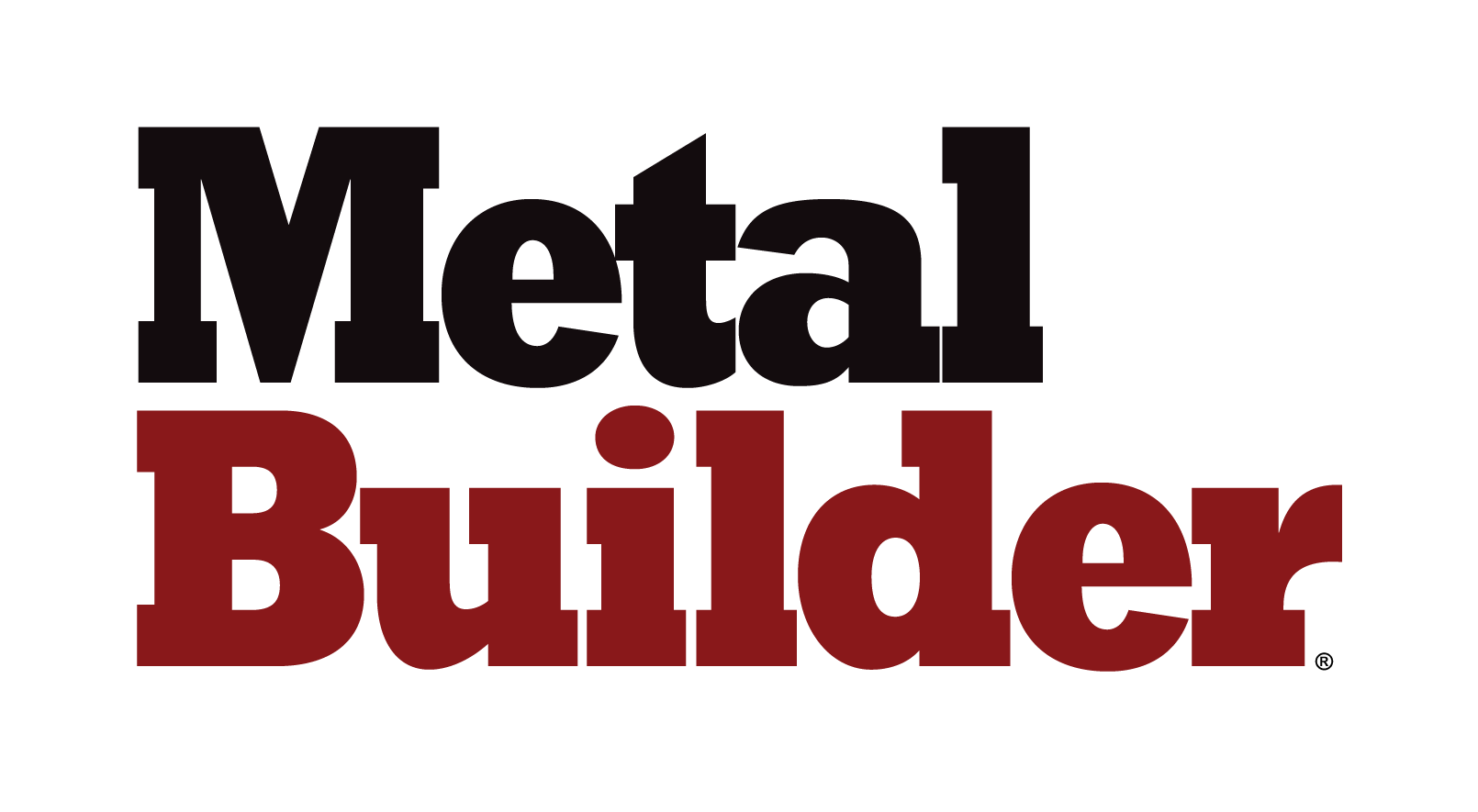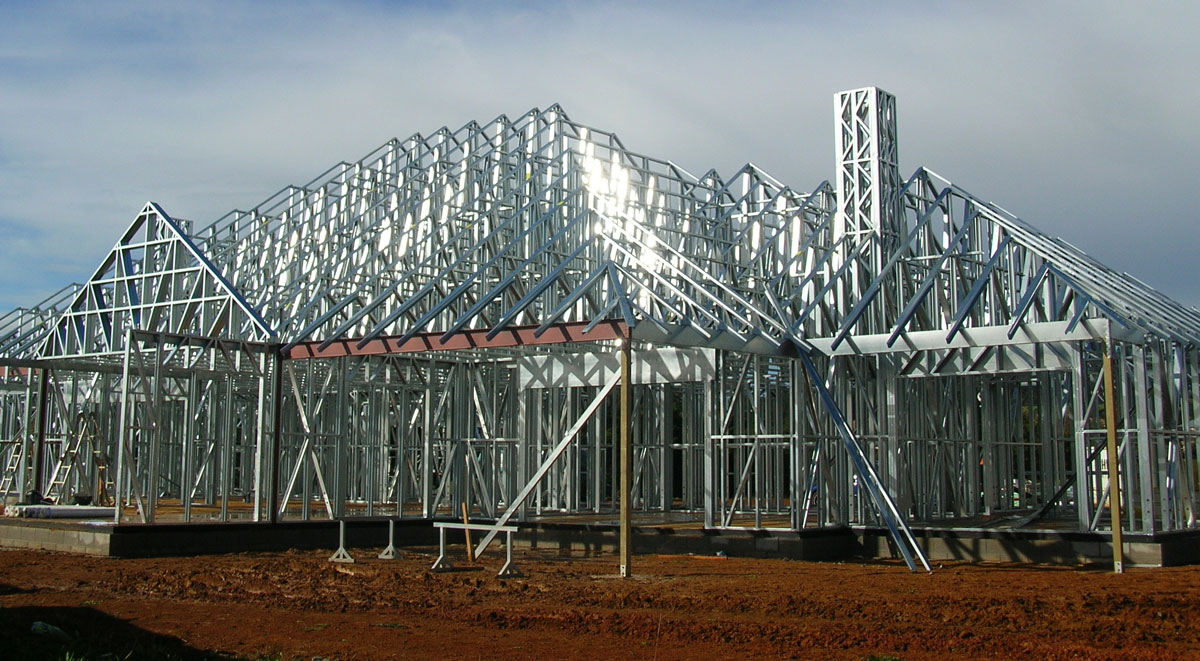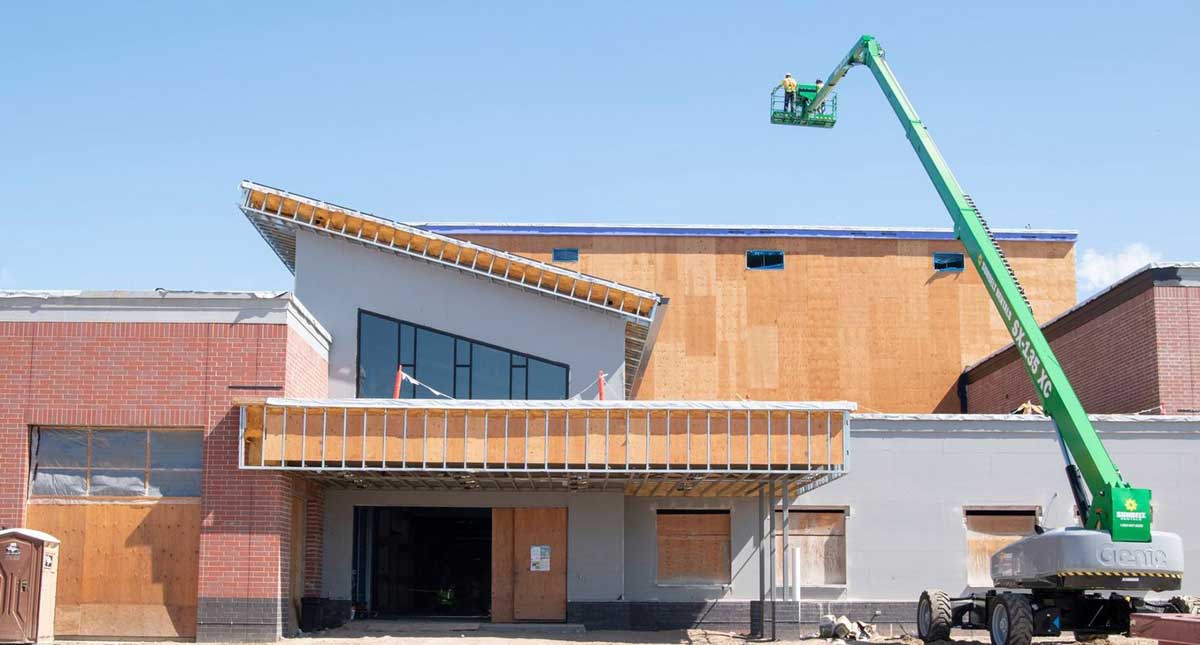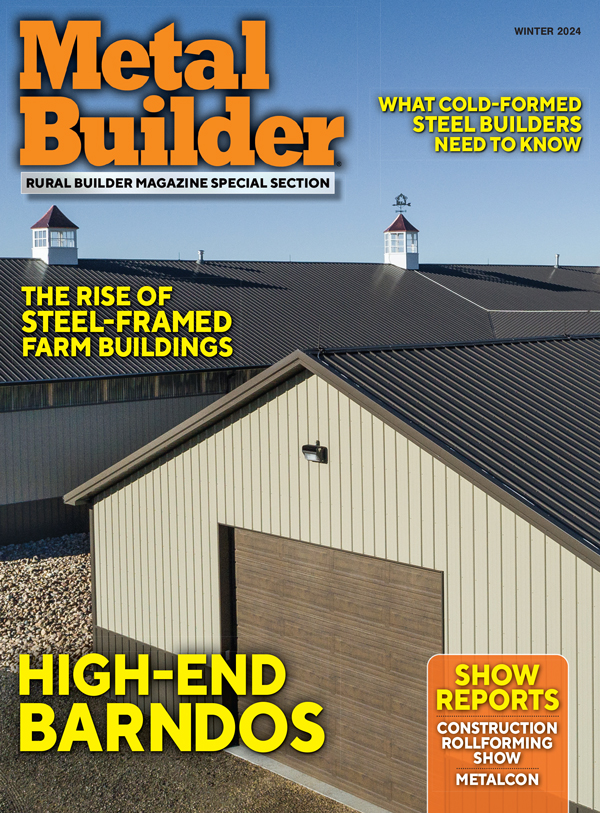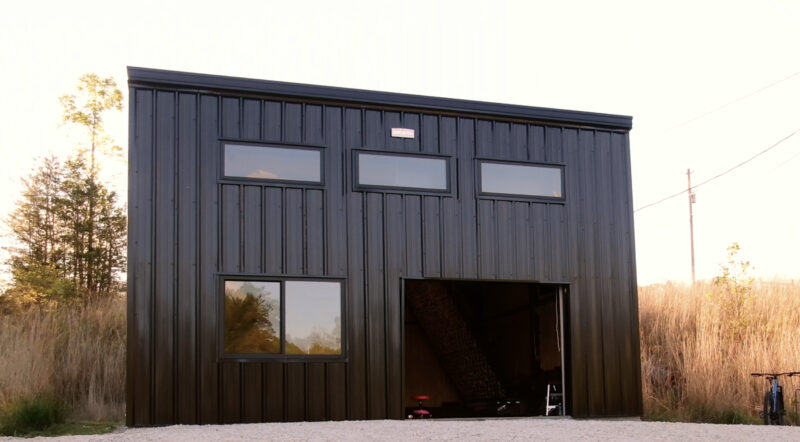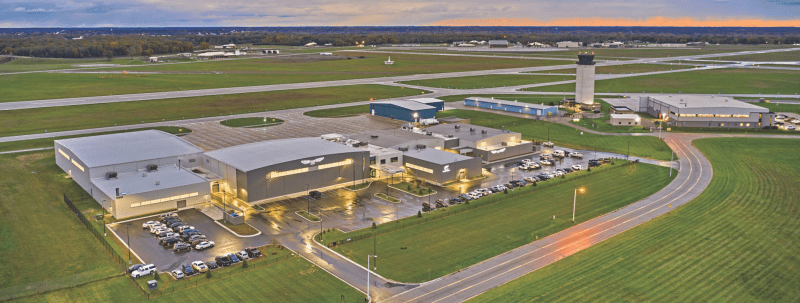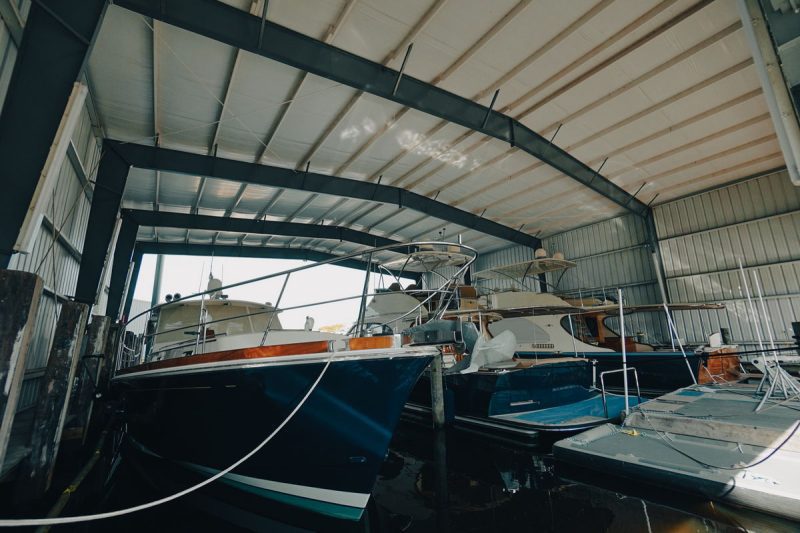… or Buy From Companies That Are Certified
By MBMA
The International Accreditation Service (IAS) accredits the inspection programs of companies that design and fabricate custom engineered metal building systems. The accreditation is based on requirements in IAS Accreditation Criteria AC472, International Building Code® and related standards. The accreditation criteria covers inspections of metal building system elements that are essential for designing, specifying, building or approving metal building systems. Here is more detail on the program.
The AC472 Accreditation Program is the most comprehensive quality assurance accreditation program of its kind. A unique characteristic of the AC472 Accreditation Program is that it audits the integrity of design engineering and manufacturing processes. It focuses on several key areas:
• Audit of order documents providing the customer with clear information on what he/she has ordered.
• Audit of the design/detailing process to assure adherence to requested codes and to confirm that the project requirements are met in a rational engineering manner. This audit not only covers the building-code applications but also the proper use of design standards such as AISC, AISI, etc.
• Audit of raw material usages including proper ASTM standards, ordering practices, tracking of mill certifications, product traceability, etc.
• Audits assure comprehensive traceability of materials and workmanship.
• Audit of manufacturing practices including machinery calibrations, measuring tools, weld certifications, etc.
• Audits to ensure the metal building manufacturer has a well-managed quality assurance system and a qualified staff. This includes verification of licensed professional engineers who design and detail the metal building system, and certified weld inspectors.
This is all verified annually through two on-site inspections of the firm’s design and manufacturing facilities and of representative projects to confirm that the appropriate standards are in place and being applied.
This assures building officials that the manufacturer has comprehensive quality assurance processes in place that provide high-quality, reliable buildings.
Why require an accredited manufacturer?
Requiring an AC472-accredited manufacturer provides an extra level of assurance that the building supplier’s engineering/order/design fabrication processes all conform to high-quality standards and are evaluated by a respected independent third party.
Building officials can deem AC472-accredited manufacturers as approved fabricators as defined in Chapter 17 of the International Building Code; elimination of additional inspections; cost savings to verify code compliance of metal building fabrication; and assurance the metal building manufacturer’s staff has a well-qualified quality system in place.
What is the International Accreditation Service, Inc.?
The International Accreditation Service (IAS) is a wholly-owned subsidiary of the International Code Council, which evaluates and accredits building departments, special inspection agencies, testing and calibration laboratories, fabricator inspection programs, and oversees the AC472 Accreditation Program for Metal Building Systems Manufacturers.
IAS measures a manufacturer’s ability to conform to documents and standards referenced in building codes through onsite assessment and periodic monitoring by IAS-accredited third-party inspection agencies. It also scrutinizes a manufacturer’s quality assuranxe program.
Why was the AC472 Accreditation Program developed?
As industry products and design programs advanced, metal building systems became very successful in entering new markets involving larger buildings with high human occupancy. Thus, the members of the Metal Building Manufacturers Association (MBMA), who developed this expanding technology, felt a responsibility to work with IAS to develop an accreditation program to critically evaluate the sales, engineering and manufacturing functions in the metal building systems industry and to comply with the special inspection requirements in Chapter 17 of the International Building Code®.
Don’t ISO and AISC accomplish the same things as AC472?
No. Those programs only address the manufacturing process — not the unique needs of building systems. Since the design, detailing and manufacturing is done by the same company, these processes are mutually dependent and need to be evaluated together.
With conventional construction, I receive a set of design calculations and drawings stamped by a registered professional engineer. Why isn’t that adequate for metal building systems?
When a conventional designer selects standard beam sizes off of AISC tables or out of SJI manuals, those sections are then manufactured by a fabricator. In the case of metal building systems, the design and fabricating processes are customized and require ongoing communications between the engineering and fabricating teams. The only way to be assured that these functions are being properly integrated is to require that the supplier have AC472 accreditation.
Are there areas in the country where building codes have adopted criteria requiring AC472 accreditation on building systems projects?
Yes. Most jurisdictions throughout the country have adopted the International Building Code® or an amended version of the code and enforce Chapter 17 special inspection requirements and rely on the AC472 Accreditation Program for Metal Building Systems Manufacturers to designate approved fabricators.
What Does AC472 Accreditation Mean to Manufacturers and Builders?
Why should a manufacturer get accredited?
• It provides third party verification that your firm is an approved manufacturers that meets specific and comprehensive requirements as described in Chapter 17 of the International Building Code.
• It is a benchmark for companies that design and manufacture engineered metal building systems. It shows a level of serious commitment to providing products and services that meet the highest industry standards.
• It provides a level of confidence to all constituents — owners, architects, builders, code officials, etc. — that your buildings will be designed and manufactured according to code and specifications.
• When competing against other building manufacturers, it gives the accredited firm a competitive advantage because the firm has achieved the highest level of industry recognition as defined by the highly respected International Code Council.
Why should a builder use steel from an accredited company?
Here are five good reasons:
1. Your local building code official has the means to approve the inspection programs of manufacturers involved in the fabrication of metal building systems and meet the requirements of Chapter 17 of the IBC. This should expedite the approval process.
2. Allowing only accredited suppliers helps protect your good name by guaranteeing that an audited supplier is on the project.
3. Since the building supplier is doing the structural design, accreditation assures that the product is designed by professional engineers with demonstrated knowledge of building systems and applicable codes.
4. Accreditation requires that the manufacturer has a certified weld inspector, uses raw materials that comply with applicable specifications and can provide product and workmanship traceability.
5. Accreditation requires that Letters of Certification and erection drawings are clearly written and show all necessary information for the proper erection of the building. MB
Click here to learn more about the MBMA (Metal Building Manufacturers Association).
This article is from the Summer 2023 issue.
